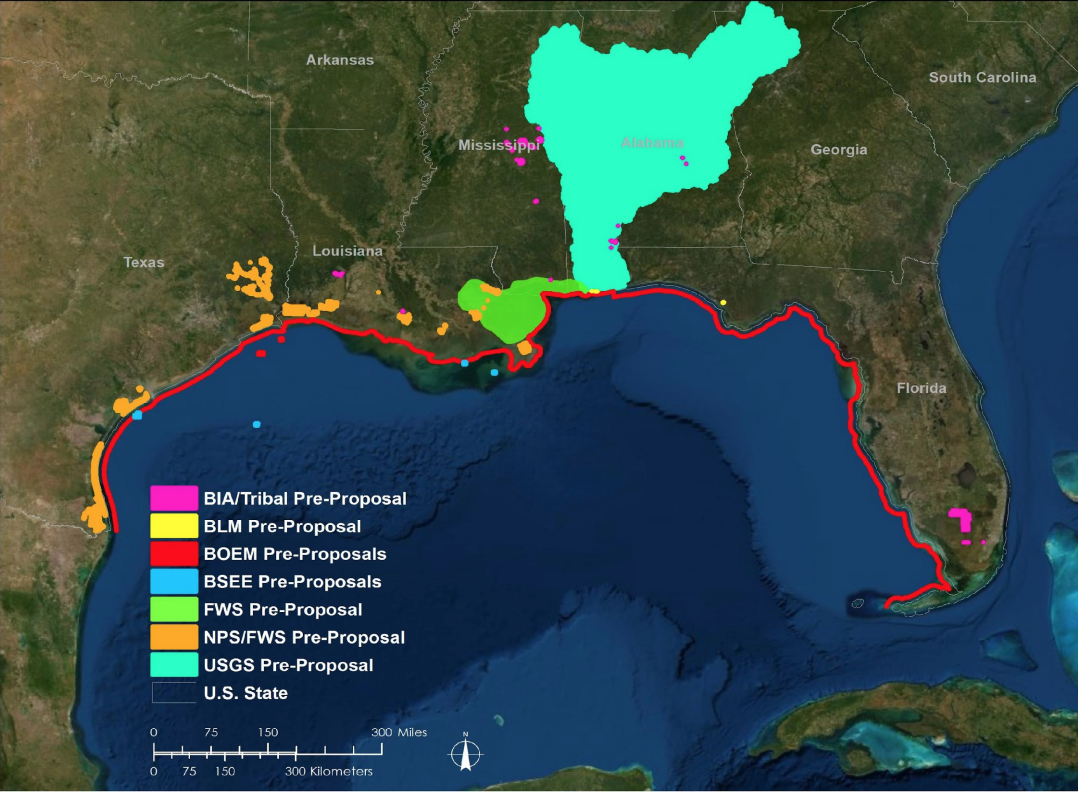
- Details
- By Native News Online Staff
WASHINGTON – Secretary of the Interior Deb Haaland announced Wednesday the approval of $927,000 for the Tribal Youth Coastal Restoration Program, which will fund six projects estimated to restore up to 1,000 acres of wildlife habitat on tribal lands along the Gulf Coast. The program will fund hands-on opportunities for tribal youth, including environmental projects and career training, to enhance community resilience, protect natural resources and the environment, and teach cultural values.
The announcement comes as the Interior Department takes steps to create union jobs around clean energy generation and climate change mitigation, and is guided by President Biden’s Executive Order 14008, which aims to tackle climate change in the U.S. and abroad.
“Innovative strategies are urgently needed to help protect and enhance our fragile ecosystems. Investing in programs that simultaneously provide economic opportunities for young people and protect our environment must be part of the solution to our climate crisis,” Haaland said in a statement that came with the announcement. “Interior is wholly committed to mobilizing the next generation of Americans to help protect, conserve, and restore our public lands and waters.”
The Tribal Youth Coastal Restoration Program will help fund projects run by the Chitimacha Tribe of Louisiana, Miccosukee Tribe of Indians of Florida, Seminole Tribe of Florida, Mississippi Band of Choctaw Indians, Poarch Band of Creek Indians and the Coushatta Tribe of Louisiana. Each Tribe has proposed its own teaching and experiential learning opportunities to prepare students to understand and respect the natural environment, such as native plant restoration, site cleanup, and water and soil sampling.
Participants will be encouraged to pursue additional courses and degree programs that will enable them to pursue careers in natural resources conservation. The activities also provide skills needed to work on restoration throughout the Gulf and engage the Native Gulf community in the larger restoration effort.
The Tribal Youth Coastal Restoration Program was initially approved by the RESTORE Council in 2015 and trained 239 students in five tribes, who restored 995 acres. The program's success led the 11-member RESTORE Council, which includes Gulf state and federal members, to unanimously approve this three-year program, which builds on the initial investment and adds the Coushatta Tribe of Louisiana.
Funding for the program, which is sponsored by the Department of the Interior, comes from the Gulf Coast Restoration Trust Fund, established in 2012 through the Resources and Ecosystems Sustainability, Tourist Opportunities, and Revived Economies of the Gulf Coast States Act (RESTORE Act) in the wake of the Deepwater Horizon oil spill.
More Stories Like This
Native News Weekly (August 25, 2024): D.C. BriefsUS Presidents in Their Own Words Concerning American Indians
Senate Committee on Indian Affairs Passes 12 Bills to Strengthen Tribal Communities
Deb Haaland Tours CNM Workforce Facilities, Highlights Trade Job Opportunities
Federal Court Dismisses Challenge to NY Indigenous Mascot Ban
Help us defend tribal sovereignty.
At Native News Online, our mission is rooted in telling the stories that strengthen sovereignty and uplift Indigenous voices — not just at year’s end, but every single day.
Because of your generosity last year, we were able to keep our reporters on the ground in tribal communities, at national gatherings and in the halls of Congress — covering the issues that matter most to Indian Country: sovereignty, culture, education, health and economic opportunity.
That support sustained us through a tough year in 2025. Now, as we look to the year ahead, we need your help right now to ensure warrior journalism remains strong — reporting that defends tribal sovereignty, amplifies Native truth, and holds power accountable.
 The stakes couldn't be higher. Your support keeps Native voices heard, Native stories told and Native sovereignty defended.
The stakes couldn't be higher. Your support keeps Native voices heard, Native stories told and Native sovereignty defended.
Stand with Warrior Journalism today.
Levi Rickert (Potawatomi), Editor & Publisher

